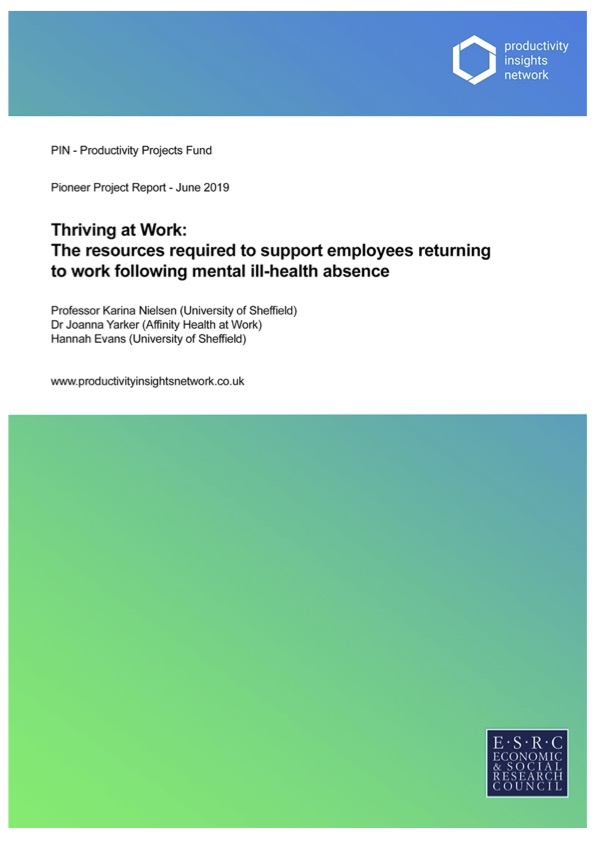Thriving at Work: The resources required to support employees returning to work following mental ill-health absence
Sustainable return to work (SRTW) for workers with common mental disorders (CMDs) presents a major societal challenge in terms of scale and costs. Approximately 15% of the working population suffer from CMDs such as depression, anxiety and adjustment disorders (OECD, 2014) and for 50% their experience of mental ill-health will lead to period of long-term sickness absence. A successful return to work is no guarantee for sustainable return to work. There is an urgent need to better understand how workers with CMDs can be better supported to return to, and stay in, productive work.
This project aimed to develop a theoretical, empirical and practical understanding of the resources in and outside the workplace that promote sustainable return to work (SRTW) among workers with CMDs, specifically stress, anxiety and depression, who return to work after long- term sick leave.
We use the recently developed the five-level IGLOO framework as a guiding heuristic to explore how the framework applies to current SRTW systems and practices in the UK.
Thriving at Work: The resources required to support employees returning to work following mental ill-health absence
- Date Published
- Sat, 15th Jun 2019
- Publisher
- Productivity Projects Fund
- Author
- Prof Karina Nielsen, Dr Joanna Yarker, Hannah Evans
- Categories
- Keywords
- return to work, mental ill-health, IGLOO, employees
Sustainable return to work (SRTW) for workers with common mental disorders (CMDs) presents a major societal challenge in terms of scale and costs. Approximately 15% of the working population suffer from CMDs such as depression, anxiety and adjustment disorders (OECD, 2014) and for 50% their experience of mental ill-health will lead to period of long-term sickness absence. A successful return to work is no guarantee for sustainable return to work. There is an urgent need to better understand how workers with CMDs can be better supported to return to, and stay in, productive work.
This project aimed to develop a theoretical, empirical and practical understanding of the resources in and outside the workplace that promote sustainable return to work (SRTW) among workers with CMDs, specifically stress, anxiety and depression, who return to work after long- term sick leave.
We use the recently developed the five-level IGLOO framework as a guiding heuristic to explore how the framework applies to current SRTW systems and practices in the UK.


